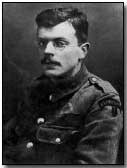As The 100th Anniversary Of The First Year Of World War I (Remember The War To End All Wars) Continues ... Some Remembrances-Writers’ Corner
In say 1912, 1913, hell, even the beginning of 1914, the first few months anyway, before the war clouds got a full head of steam in the summer they all profusely professed their unmitigated horror at the thought of war, thought of the old way of doing business in the world. Yes the artists of every school but the Cubist/Fauvists/Futurists and Surrealists or those who would come to speak for those movements, those who saw the disjointedness of modern industrial society and put the pieces to paint, sculptors who put twisted pieces of metal juxtaposed to each other saw that building a mighty machine from which you had to run created many problems; writers of serious history books proving that, according to their Whiggish theory of progress, humankind had moved beyond war as an instrument of policy and the diplomats and high and mighty would put the brakes on in time, not realizing that they were all squabbling cousins; writers of serious and not so serious novels drenched in platitudes and hidden gabezo love affairs put paid to that notion in their sweet nothing words that man and woman had too much to do, too much sex to harness to denigrate themselves by crying the warrior’s cry and by having half-virgin, neat trick, maidens strewing flowers on the bloodlust streets; musicians whose muse spoke of delicate tempos and sweet muted violin concertos, not the stress and strife of the tattoos of war marches with their tinny conceits; and poets, ah, those constricted poets who bleed the moon of its amber swearing, swearing on a stack of seven sealed bibles, that they would go to the hells before touching the hair of another man. They all professed loudly (and those few who did not profess, could not profess because they were happily getting their blood rising, kept their own consul until the summer), that come the war drums they would resist the siren call, would stick to their Whiggish, Futurist, Constructionist, Cubist worlds and blast the war-makers to hell in quotes, words, chords, clanged metal, and pretty pastels. They would stay the course.
And then the war drums intensified, the people, their clients, patrons and buyers, cried out their lusts and they, they made of ordinary human clay as it turned out, poets, artists, sculptors, writers, serious and not, musicians went to the trenches to die deathless deaths in their thousands for, well, for humankind, of course, their always fate ….
Prose & Poetry - Ivor Gurney
 The Gloucestershire poet and composer Ivor Gurney (1890-1937) was born on 28 August 1890 and educated as a chorister at King's School, Gloucester, where he won a scholarship to the Royal College of Music. Gurney wrote both poetry and music from an early age, 14.
The Gloucestershire poet and composer Ivor Gurney (1890-1937) was born on 28 August 1890 and educated as a chorister at King's School, Gloucester, where he won a scholarship to the Royal College of Music. Gurney wrote both poetry and music from an early age, 14.
Sponsored Links
First wounded in April and then gassed in September 1917 whilst serving in France, Gurney was sent home.
In 1917 his successful collection Severn and Somme went into a second edition. He continued to write music however, whilst occupied in a variety of jobs. War's Embers was published in 1919, with To His Love being published in this latter collection.
Always highly sensitive and moody, Gurney had developed signs of serious mental disturbance by 1918, although his mental condition was already strained by 1912. He was subsequently committed by his family to a Gloucester asylum in 1922 and later transferred to Dartford.
He never subsequently left hospital, although the popular myth that he continued to relive the war was not in fact true: he himself admitted lying - claiming he had suffered from shell shock - simply in order to gain a better pension.
Ivor Gurney, who never married, died on 26 December 1937 at the City of London mental hospital. During his life he had written hundreds of poems as well as approximately 300 songs in addition to instrumental music.
While his reputation during his own lifetime was primarily based around the quality of his music, his poetical talents have subsequently gained recognition (and were championed by Edmund Blunden).
The Silent One
Who died on the wires, and hung there, one of two -
Who for his hours of life had chattered through
Infinite lovely chatter of Bucks accent:
Yet faced unbroken wires; stepped over, and went
A noble fool, faithful to his stripes - and ended.
But I weak, hungry, and willing only for the chance
Of line - to fight in the line, lay down under unbroken
Wires, and saw the flashes and kept unshaken,
Till the politest voice - a finicking accent, said:
"Do you think you might crawl through, there: there's a hole"
Darkness, shot at: I smiled, as politely replied -
"I'm afraid not, Sir." There was no hole no way to be seen
Nothing but chance of death, after tearing of clothes
Kept flat, and watched the darkness, hearing bullets whizzing -
And thought of music - and swore deep heart's deep oaths
(Polite to God) and retreated and came on again,
Again retreated - and a second time faced the screen.




















